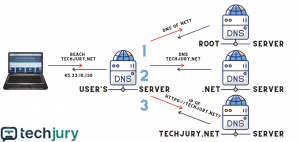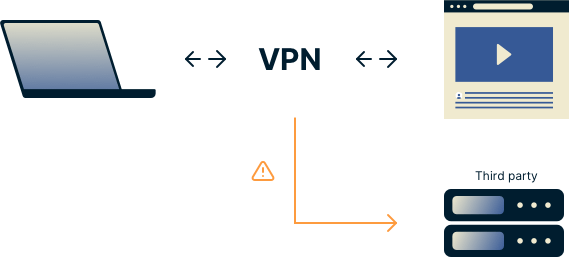DNS Leak Test – ExpressVPN
What is a DNS leak?
Sometimes a VPN can fail to protect your device’s DNS queries even when the rest of your traffic is concealed by the VPN tunnel. This is called a “DNS leak. ” If your DNS leaks, unauthorized entities, like your internet service provider or DNS server operator, can see which websites you visit and any apps you cause of its role as the internet’s address book, DNS affects nearly everything you do online. Your browser and other apps use it to find the servers that operate the websites and services that you rely on. Your device sends its queries to a DNS server, and the server sends back directions to what you’re looking for. This is what makes DNS a significant privacy risk.
How can I check if my VPN is protecting me?
ExpressVPN will protect you from DNS leaks if it’s configured properly. The DNS Leak Test on this page will help you confirm that ExpressVPN is working as it should.
How does ExpressVPN prevent DNS leaks?
Without a VPN, your device typically uses a DNS service provided by your ISP. But when you connect to ExpressVPN, your device will only use DNS servers operated entirely by ExpressVPN. This benefits you because:
ExpressVPN DNS servers are fast
ExpressVPN doesn’t keep activity or connection logs
All traffic between your device and DNS servers is encrypted end-to-end
Here’s how it works. To visit a webpage, you enter a URL or click a link in your browser. That URL is sent via ExpressVPN’s encrypted tunnel to a DNS server run by ExpressVPN. The DNS server looks up the IP address and sends it to ExpressVPN, which accesses the site. In an instant, ExpressVPN returns that webpage to you. No traffic escapes the security of the tunnel.
If I already have a VPN, why do I need to check for DNS leaks?
Sometimes, one of two things might go wrong:
Your device might send DNS traffic outside of the VPN tunnel.
Your device might send DNS traffic through the VPN tunnel, but to a third-party DNS server.
In both cases, unauthorized third parties might see the list of websites and apps you use.
What causes VPN leakage of DNS?
DNS leaks can happen for many reasons. Here are just a few:
Your VPN is manually configured. If you’re manually configuring a VPN connection, the risk of DNS leaks is higher and depends on your exact operating system configuration. Using the ExpressVPN apps will eliminate many of these risks.
An attacker controls your router, such as a malicious Wi-Fi operator at a coffee shop. An attacker may be able to trick your device into sending DNS traffic outside of the VPN tunnel. ExpressVPN apps offer DNS leak protection, but other apps and manual configurations might be vulnerable.
Manual DNS setup. You (or software on your device) specifically told the operating system not to use DNS servers operated by ExpressVPN. Power users might require a particular DNS service, but for security reasons, it’s probably undesired for most people.
What if I’m connected to ExpressVPN, and I still see a DNS leak on this page?
Get in touch with Support and we’ll get that fixed ASAP.

DNS leak test and protection | NordVPN
Find out if your internet traffic is fully secure and NordVPN NowNordVPN sends all your DNS queries through a secure VPN tunnel to keep them private at all does DNS mean? The Domain Name System (DNS) is the reason why browsing the internet is so quick and simple. Its job is resolving domain names such as “” into actual IP addresses. In other words, it translates the long, complex numeric names of web servers into human language, and the other way is how it works: Whenever you want to visit our website, you type “” into your browser. Your computer or smartphone sends a query to a DNS server: it contacts the server and asks for the unique IP address of our site. Only after the DNS server provides the IP address, your device can finally connect to the website you is a DNS leak? When you connect to a VPN, all your online traffic is supposed to be routed through the VPN network. That includes the DNS queries we mentioned before. They should go through the encrypted tunnel straight to your VPN provider’s DNS that’s not always the case. A DNS leak is a security flaw that allows your queries to travel to the default DNS servers, which belong to your internet service provider (ISP). That may happen if you:are running Windows 8 or later with the “Smart Multi-Homed Name Resolution” feature enabled;have recently reset your system preferences;have set up a VPN manually;are using a VPN service that doesn’t own its DNS servers nor offer adequate protection from can it affect me? If any of your online traffic goes out through the regular, unencrypted route, third parties may intercept it. That includes your ISP or DNS provider, who would be able to see the websites you visit, the services you use, and top of that, you won’t even know about it, unless you take a special DNS test for leaks, like the one provided here. You could call it a VPN security test because if a service won’t fully reroute all your traffic, it’s not as secure as it should be. That’s why it’s imperative to choose a VPN with DNS leak does NordVPN prevent DNS leaks? When you connect to NordVPN, your device only uses DNS servers operated by NordVPN. All your DNS queries travel over the encrypted tunnel and are resolved on the same VPN server you are connected way, you never have to worry about your confidential information leaking and third parties spying on can I test my VPN for leaks? You can check for DNS leaks in just a few easy steps:Step 1Go to the DNS leak test website. It not only allows you to check your VPN connection for leaks, but also provides advice on how to fix any leaks you 2For VPN check, see if the displayed IP address and location match your real ones. If so, either you’re not connected to a VPN, or your VPN service is not 3To check your DNS status, select Standard or Extended Test. If you are connected to a VPN server and the VPN leak test displays DNS servers that don’t belong to your actual ISP, your traffic is if you are connected to NordVPN, and still see a DNS leak during the test? Please contact our support team our support team over live chat or email. We’ll help you sort out any issues as soon as a VPN service you can trustFrequently asked questionsHow do I know if my VPN is leaking? In order to find out if your VPN service is leaking any of your real information, you need to perform a test. You can go to the DNS and VPN leak test website and take a look at your IP address. Is it your real one? If so, either you’re not connected to a VPN server or your VPN is not do I know if my DNS is leaking? To check if your DNS is leaking, you’ll have to perform a DNS leak test. Go to this website and do the tests. If at least one of the servers does not belong to your VPN service provider, it’s probably leaking your does a DNS leak test work? A DNS leak test works by sending a number of domain names for the VPN to resolve. If at least one of the servers in the results belongs to your ISP, the VPN likely has a DNS do I fix a DNS leak? If you think NordVPN has leaks, get in touch with our support team for a DNS leak fix. We will help you figure out how to stop DNS leaks and get you back to secure and private browsing in no time.
Standard vs Extended test – DNS leak test
In early 2014 the site was upgraded in order to more comprehensively search for DNS leaks and as a result two separate tests were created.
The DNS leak test works by sending your client a series of domain names to resolve within a specific test domain. Each request is sent from your client to your configured DNS server. Even if you have configured a single DNS server, there may be many other servers that the request is passed on to in order to be resolved (normally to load balance the requests). For example if you configure Google DNS then you will often find 6-10 Google DNS servers which are fullfilling the DNS requests. The Standard test performs 1 round of 6 queries for a total of 6 queries. This should be more than sufficient to discover if you have a DNS leak. The original test prior to the 2014 upgrade did 3 queries. The advantage of this test is that it is fast. Use this test to quickly check for dns leaks when you connect to your VPN service.
The Extended test performs 6 rounds of 6 queries for a total of 36 queries. This high number ensures that all DNS servers are discovered. However for the purposes of discovering if you have a DNS leak this is not normally neccessary and can take 10-30 seconds longer to complete. If you have strong anonymity/privacy requirements you can choose the extended test just to be certain.
<< back
Frequently Asked Questions about dnsleaktest
Is Dnsleaktest safe?
But that’s not always the case. A DNS leak is a security flaw that allows your queries to travel to the default DNS servers, which belong to your internet service provider (ISP). That may happen if you: … are using a VPN service that doesn’t own its DNS servers nor offer adequate protection from leaks.
What is DNS leak test?
The DNS leak test works by sending your client a series of domain names to resolve within a specific test domain. Each request is sent from your client to your configured DNS server. … Use this test to quickly check for dns leaks when you connect to your VPN service.
How do I check for a DNS leak?
There are easy ways to test for a leak, again using websites like Hidester DNS Leak Test, DNSLeak.com, or DNS Leak Test.com. You’ll get results that tell you the IP address and owner of the DNS server you’re using. If it’s your ISP’s server, you’ve got a DNS leak.

